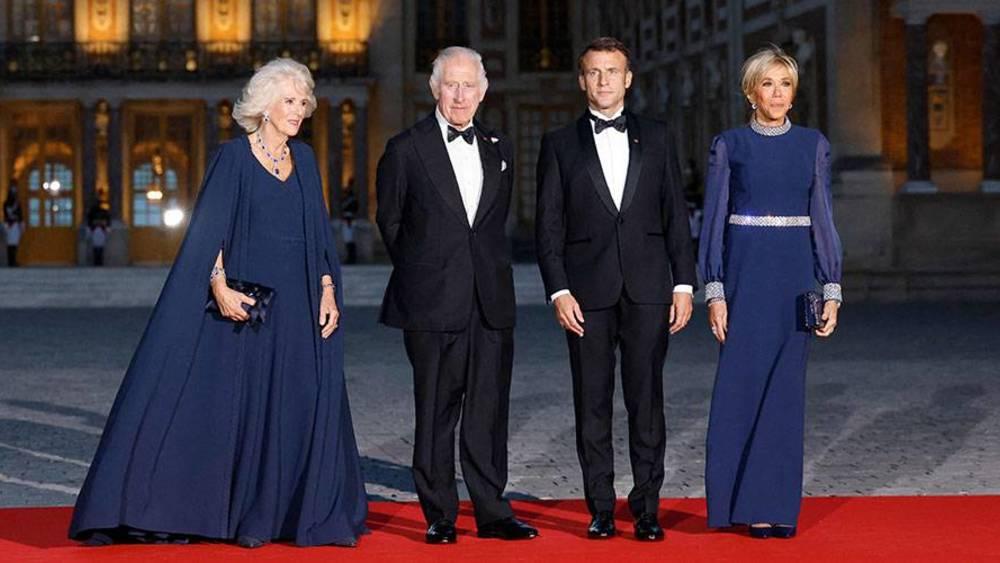
A Muslim student in France filed a complaint with the United Nations regarding being subjected to “discrimination” after she was expelled from school for wearing a “kimono,” while the Queen of Britain caught the attention wearing an abaya-like dress during her meeting with the French President in Paris on Thursday, September 21.
The kimono is a Japanese garment that veiled female students resorted to wearing after the abaya was banned, because it is loose and covering like the abaya. France is expected to witness widespread demonstrations against the ban, as it is a racist decision that targets the cultural identity of Arabs, Africans, and Muslims, as many students are being expelled for wearing loose clothing.
Queen Camilla of Britain became part of the conflict during her meeting with the French President at the Palace of Versailles in Paris at a dinner held in her honour and in honour of King Charles III during their official visits to France.
The Queen of Britain wore a dress resembling an abaya, raising controversy, at a time when France banned this outfit on the grounds that it expressed religious affiliation and opposed the principles of secularism.
On September 5, the student (whose name remains anonymous) was sent home for wearing a kimono.
The 15-year-old, who lives in Lyon, sent a complaint to Ashwini K. Bee, UN Special Rapporteur on contemporary forms of racism, racial discrimination, xenophobia and related intolerance, regarding “the discrimination she was subjected to on the basis of her religious affiliation.”
The complaint was sent to the United Nations through the student’s lawyer, Nabil Boudi, who issued a statement on Friday, September 22, regarding the case, according to the Middle East Online website.
According to the statement, the complainant, criticizing the abaya ban imposed by French Education Minister Gabriel Attal, said she believed that “the French government did not take the necessary steps to prevent all types of discrimination against women.”
Earlier, the student also filed a complaint with the Lyon Public Prosecutor’s Office on the grounds that she was “exposed to discrimination because of her religious affiliation.”
Members of the French government said last month that the ban on wearing the abaya in schools in France responds to the need to unite in the face of a “political attack.”
Attal said the issue was about “forming a united front” in the face of attacks targeting secularism.
On September 7, 2023, the Council of State, the highest administrative court in France, ratified the decision to ban the wearing of the abaya in schools, as it falls within the “logic of confirming religious affiliation.”
The ruling came after Vincent Bringarth, a lawyer for the Action for Muslim Rights Organization (ADAM), filed an appeal on August 31 before the Council of State, demanding the suspension of the ban on the abaya, which he said violated “several basic principles of freedoms.”
The ban has sparked a backlash against the government, which has been criticized in recent years for targeting Muslims with certain statements and policies, including raids on mosques and charitable institutions, and an “anti-separatism” law that imposes broad restrictions on society.
On August 30, the United Nations criticized France’s decision to ban the wearing of the abaya in primary and secondary schools.
Hurtado said, “International human rights standards stipulate that restrictions should not be imposed on manifestations related to religion or belief, including the choice of clothing, except under very limited circumstances, including those related to safety, order, health, or public morals.”
The UN spokeswoman said, “Achieving gender equality requires recognizing the barriers that prevent women and girls from making free choices, and creating an environment that supports their decisions, including choosing clothing.”





